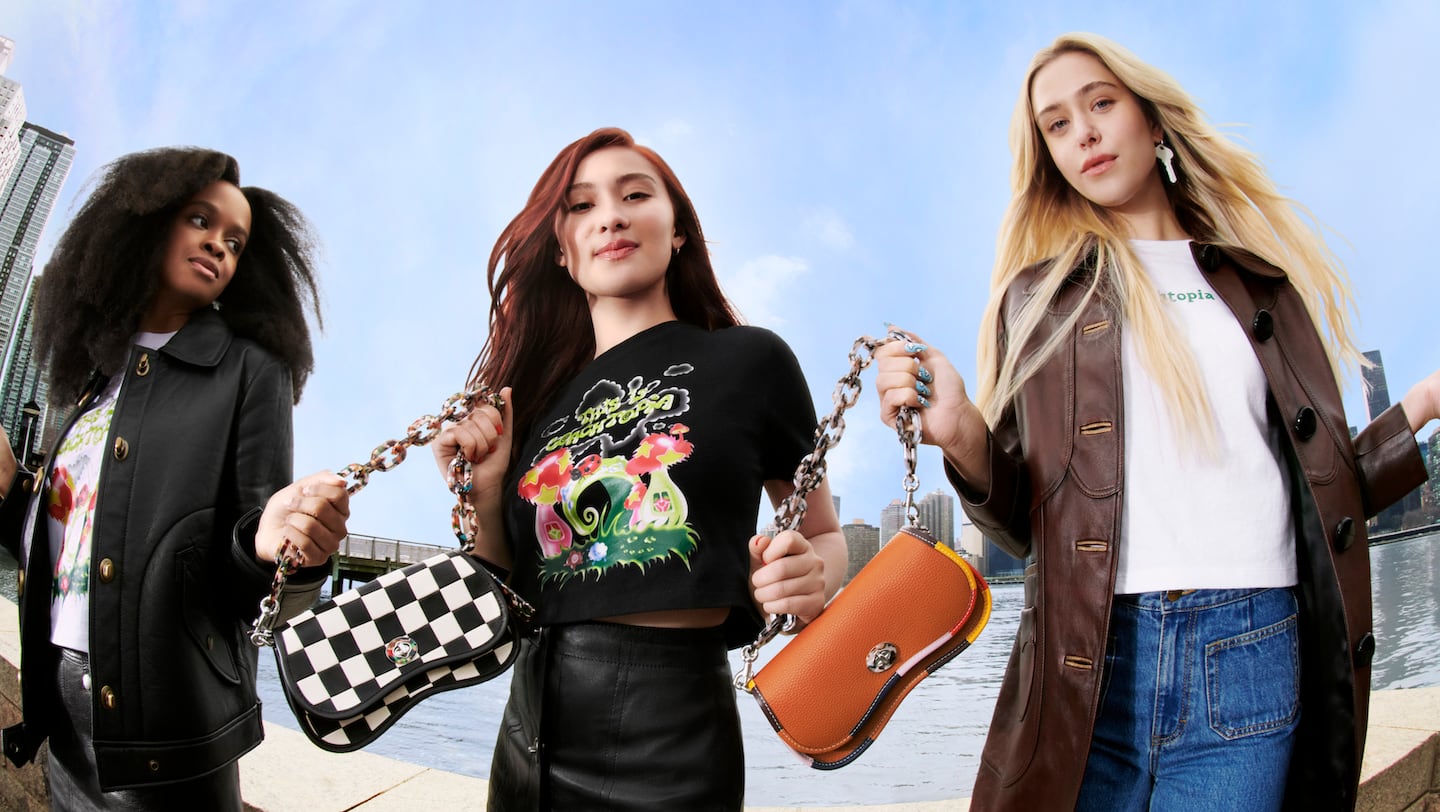
The Business of Fashion
Agenda-setting intelligence, analysis and advice for the global fashion community.

Agenda-setting intelligence, analysis and advice for the global fashion community.

A little over six months ago Coach CEO Todd Kahn teased the company’s long-term vision to develop a new kind of business, one where its products are designed to be remade and re-used.
On Thursday, the American handbag brand offered a first glance at what that might look like with the launch of Coachtopia, a new sub-brand offering reworked and recycled handbags, clothes and shoes.
Coachtopia’s first collection includes a set of patchworked handbags made from repurposed leather scraps. It’s geared to test the market for new design and production models, establishing a starting point from which to accelerate the brand’s ambitions to develop a more ”circular“ business model.
“I think, ultimately, Coachtopia for me is the future,” Kahn told analysts during parent company Tapestry’s investor day in September.
ADVERTISEMENT
Coach is one of dozens of brands leaning into the buzzy concept of circularity, dabbling in technologies and business models intended to keep products on the market for longer and turn old clothes back into new ones at the end of their life. The concept could help resolve the tension between brands’ climate commitments and their need to grow.
But fashion’s attempts at circularity remain nascent, with little indication brands are making progress to turn pilot programmes into meaningful parts of their businesses. Companies rarely acknowledge the elephant in the room: the fact that they have still not found a way to decouple financial growth from increased product volumes and the associated environmental impact.
Coach has yet to define a strategy to scale the design and production models it aims to test through Coachtopia. The company has spent the last 20 months mapping waste in its supply chain and figuring out how to turn scraps of leather into desirable products. The first drop will be available in the US, Canada and the UK from Thursday, with plans to expand sales to Asia later in the year.
“It’s an entirely new way of thinking and designing,” said Joon Silverstein, Coach’s senior vice president of global marketing, creative and sustainability and head of Coachtopia. “We’re launching small to put it out there, get consumer reactions and feedback.”
The launch builds on other early-stage efforts to build out the company’s circular capabilities. The brand said it has given more than 20,000 products a second life since launching a take-back, resale and repair programme in 2021. Last month, parent-company Tapestry invested in recycled leather maker Gen Phoenix.
The moves are part of Coach’s broader strategy to reposition itself for a new generation of consumers. The brand has spent most of the last decade turning itself around, after getting sucked into a cycle of discounting as the “accessible luxury” market grew more competitive. Last year, the company introduced the new concept of “expressive luxury” in a bid to court Gen Z.
With Coachtopia it’s betting that visibly upcycled and repurposed products, once seen as downmarket, will become an aspirational badge of more virtuous consumption for a generation of young, sustainability-minded shoppers. How far and how fast the brand pushes the concept is likely to depend on whether its bet on what animates Gen Z is correct.
“Older consumers and more established luxury customers view leather made from recycled scraps as lower quality,” said Silverstein. “Gen Z see it as an ethical and moral choice and ask, ‘How could you not buy the recycled version?’”
For more BoF sustainability coverage, sign up now for our Weekly Sustainability Briefing by Sarah Kent.
Editor's Note: This article was revised on April 20 2023, to amend Joon Silverstein's title.
After a decade of false starts, Coach is finally hitting its stride with products people want, restrained discounting and distribution, a newfound digital savvy and fluency in Gen-Z. Finding new ways to grow without falling back into its old habits will still be tricky.
Chloé is set to become the first major luxury fashion brand to road-test digital product IDs that contain detailed information about the authenticity and eco-credentials of individual items and allow for easy resale via Vestiaire Collective.
The US luxury group that owns Coach, Kate Spade and Stuart Weitzman is focused on customer-centric tactics and products to grow in turbulent times, says the CEO in an interview for The State of Fashion 2023.

Sarah Kent is Chief Sustainability Correspondent at The Business of Fashion. She is based in London and drives BoF's coverage of critical environmental and labour issues.
The trial of Colombian designer Nancy Gonzalez for smuggling alligator and snakeskin handbags into the US shone a rare public spotlight on the trade in the exotic skins used for some of fashion’s most expensive and controversial products.
Europe’s Parliament has signed off rules that will make brands more accountable for what happens in their supply chains, ban products made with forced labour and set new environmental standards for the design and disposal of products.
Fashion’s biggest sustainable cotton certifier said it found no evidence of non-compliance at farms covered by its standard, but acknowledged weaknesses in its monitoring approach.
As they move to protect their intellectual property, big brands are coming into conflict with a growing class of up-and-coming designers working with refashioned designer gear.